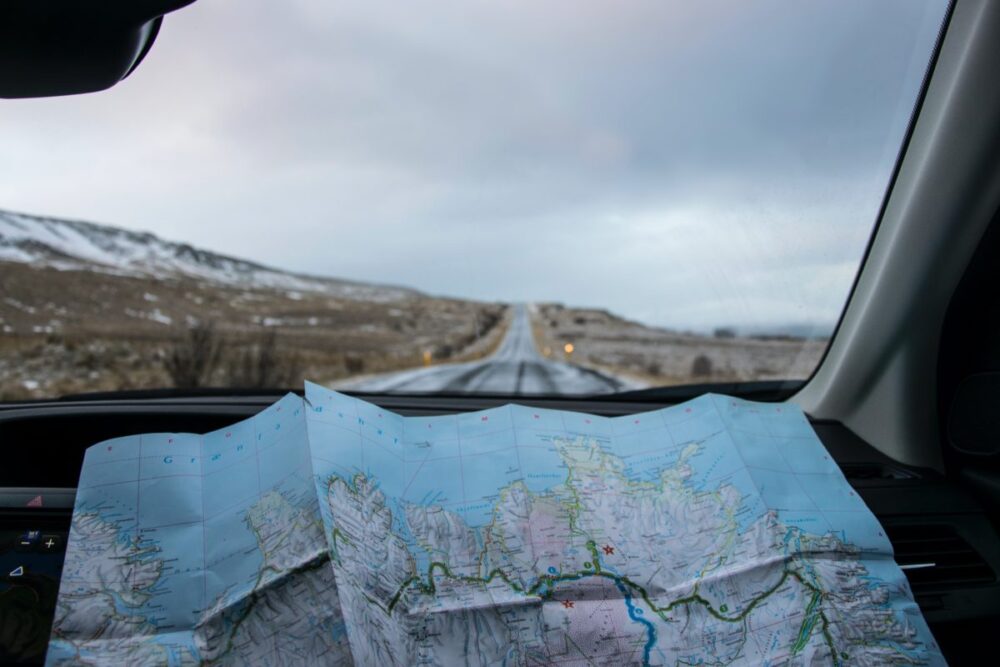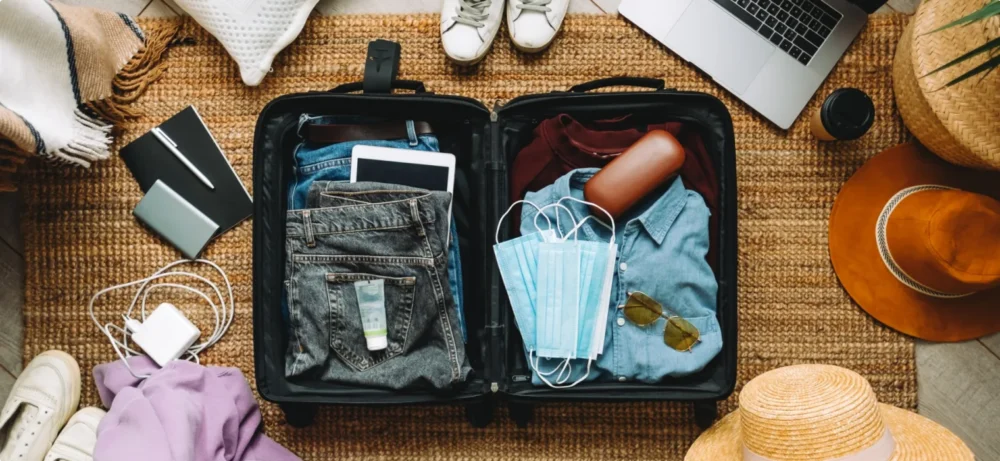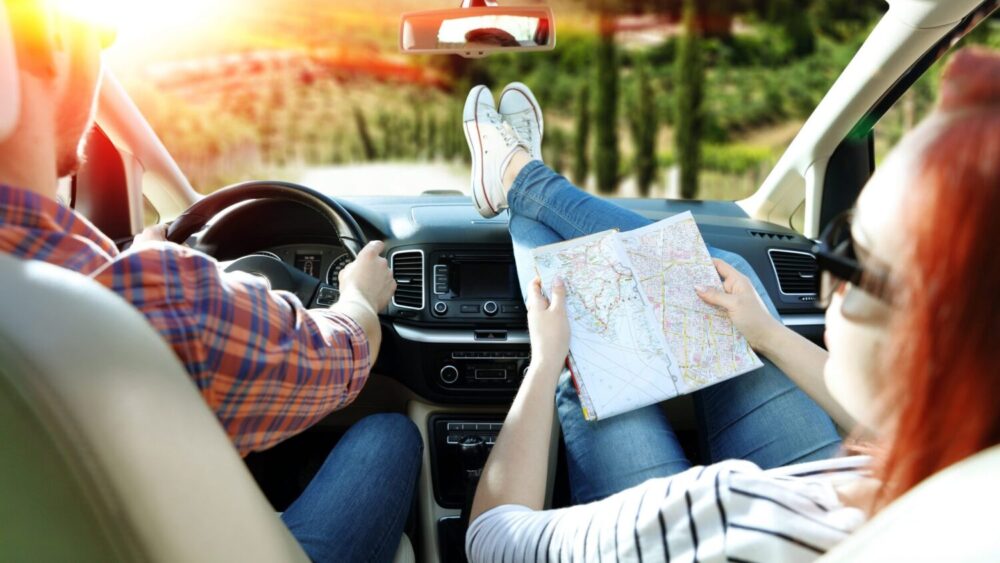Road trips are an excellent way to enjoy your travels with loved ones. You get to revel in the sceneries along the way, make a ton of memories, and experience the many joys of long-distance travel the old-school way.
It is an entirely different experience, which your typical air-traveled vacation cannot match. It’s little wonder, then, that nearly 80% of Americans opt for a road trip.
In case you are traveling to a different city, you should opt for Turks and Caicos Fast Track service.
If you are planning one, too, this article will get you up to speed on the essential activities for a worry-free and enjoyable journey. Let’s get started with our complete guide to preparing for a road trip.
1. PLAN THE ROUTE

Source: heremagazine.com
Before anything else, you need to map out the best route. You may use Google Maps or a route planner app such as www.route4me.com. Start by deciding how long you plan to be on the road. When do you intend to leave, and when exactly do you want to be back?
Once you have determined the duration of the trip, there are several other factors to consider:
-
Sites and sceneries
Identify interesting places and attractions you want to see along the way, including the wondrous, the bizarre, and the #instaworthy. But be practical: don’t try to squeeze too many things into your itinerary, no matter how tempting it may be. You will naturally want to make the best out of a road trip, especially considering the time and effort that goes into it. But ultimately, you also want to make sure you enjoy a stress-free experience.
-
Essential stops
These can include gas stations to refill the tank and restaurants and cafés to grab a bite. Also, factor in bathroom stops and a few breaks to stretch.
Driving long distances could be incredibly strenuous. So, ensure you stop by a motel to get sufficient sleep instead of driving through the night.
-
Driving conditions
External elements beyond your control, such as poor road conditions and adverse weather factors, could all impact the route you take.
Once you have identified the above factors, map them out on a GPS-based app. Take Google Maps for instance. It is also worth getting yourself a printed map. Now, this may sound old-school, but technology malfunctions and signal failures are not unheard of, especially when you are traversing less-traveled regions. Therefore, have your backup options ready. Mark all the intended stops on the physical map, so you won’t need to waste hours figuring things out in the middle of nowhere.
Consider the distance between each stop and map out the best route. But keep in mind that the best route might not always be the shortest one. It could depend on where you want to stop over, which roads would offer the most impressive scenic views, and which ones are the safest or in the best condition. Then calculate how long you might need to drive at a stretch. Be practical in your estimations and determine whether any of your travel buddies would need to take over the wheel for you to get some rest in between.
2. PLAN WHAT TO TAKE

Source: odysseytraveller.com
When you are out on the road, you need to plan for emergencies since finding help could be challenging in certain areas. It’s important to pack essentials like flashlights, power packs, phone chargers, and first-aid kits. Also, stock plenty of snacks and drinks, and take enough clothes and blankets to last the journey. And don’t forget tools and spares for your vehicle, including a spare tire, jack, fix-a-flat, and jumper cables. Double-check all the items to ensure they are in working order.
Some fun travel music will also come in handy. After all, there is only so much you can talk about after several hours stuck in a car with the same group of people. Everyone will eventually need some space and quiet time. Music and movies could be the best options to fill the void.
In addition, prepare an emergency contact list. It can include local mechanics in case of a vehicle breakdown, roadside motels, and other useful contacts. Get recommendations from travelers familiar with your route, and use Leadar to search for contact information.
Avoid last-minute packing for a worry-free start to your journey. Planning your luggage ahead of time makes it easier to organize the car space so you wouldn’t need to leave behind any essentials. But remember, when you are covering long distances, there should be enough space for you and your passengers for a comfortable ride. This is why over-packing is not the best option.
3. GET YOUR VEHICLE CHECKED

Source: topdriver.com
Another important factor to note is your vehicle’s roadworthiness. It should be fit to endure the entire journey and ensure your safety.
An experienced mechanic will carry out all the critical tests, such as tire and oil checks, and advise you about any repairs or replacements required.
Sometimes, you will rent a car or an RV for the comfort of the passengers. In such instances, you will still need to confirm that the rented vehicle is in good condition. Perform a visual inspection and assess the level of comfort when it comes to details like seating and legroom. In addition, check with the rental company about fuel efficiency, the last service performed, and any other information you should know before taking the vehicle out on the street.
TO RECAP
With adequate planning, any road trip could be fun and exciting, even for the rookie traveler. Remember, being a passenger and taking charge of the wheel are two entirely different things. When you are in the driver’s seat, you get to call the shots, but you are also responsible for your passengers’ safety and ensuring they have a good time. And a well-thought-out plan could help you achieve both.
Start mapping out the route by considering the sites and sceneries you want to see, the essential stops you will need to make, and the road conditions. Determine what you should take with you and pack in advance to avoid any last-minute misadventures. Then, get your vehicle checked to ensure safety and comfort. You will, no doubt, learn much on your first road trip. But once you know how to prepare, you are guaranteed to have lots of positive emotions about your journey.


















